Podcasting has exploded in popularity over the last decade, becoming a vital medium for sharing stories, interviews, and niche discussions. However, producing a high-quality podcast requires time-consuming editing, detailed audio adjustments, and meticulous transcription. Fortunately, AI-powered podcast production and editing tools have emerged to streamline this process.
With AI advancements, creators can now significantly cut down on the time they spend editing, allowing them to focus more on content creation. In this article, we’ll dive deep into the top 10 AI podcast production tools, evaluating their features, pricing, pros, cons, and overall performance. Whether you’re an experienced podcaster or just starting, these tools are designed to simplify your workflow.
Top 10 AI Podcast Production and Editing Tools
1. Descript
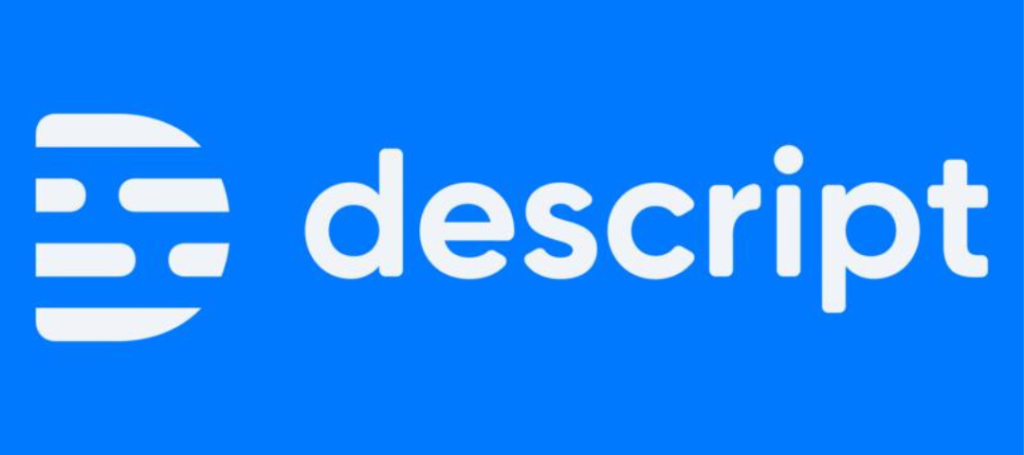
Overview:
Descript is a revolutionary AI-driven tool that has quickly become a favorite among podcasters for its intuitive and powerful approach to podcast production. The platform’s standout feature is its ability to convert audio into text, allowing you to edit your podcast by simply modifying the transcript. This text-based editing system transforms what would normally be a time-consuming audio editing process into a much more efficient workflow. In addition to audio, Descript supports video editing, screen recording, and multi-track editing, making it a versatile tool for various content creators.
Key Features:
- Transcription-based editing: Descript’s core feature lets you edit audio by editing the corresponding text transcript. You can cut, move, or replace sections of your podcast by directly manipulating the text.
- Overdub: This innovative feature allows users to add or replace words in their recordings using AI-generated voice cloning. It can be particularly useful for fixing small errors without needing a re-recording.
- Studio Sound: An AI-powered tool that enhances sound quality by reducing background noise and automatically leveling audio.
- Screen recording: Great for creators who need to produce video content or tutorials alongside their podcasts.
- Multi-track editing: Ideal for handling complex projects with multiple speakers, sound effects, or music layers.
Pricing:
- Free: 3 hours of transcription.
- Creator Plan: $12/month for 10 hours of transcription.
- Pro Plan: $24/month for 30 hours of transcription.
- Enterprise Plan: Custom pricing.
Pros:
- Easy-to-use interface, perfect for beginners.
- Overdub feature is a game-changer for quick fixes.
- Works well for both audio and video projects.
Cons:
- Overdub’s AI requires extensive voice data to sound natural.
- Limited transcription hours in the free plan.
Rating: 9/10
Descript stands out for its ease of use and innovative text-based audio editing, making it one of the most user-friendly podcast tools on the market. However, the AI-generated voices for the Overdub feature may still need refinement.
2. Auphonic

Overview:
Auphonic is a specialized AI tool designed for audio post-production, making it one of the best options for podcasters focused on improving sound quality. Its standout feature is automatic audio leveling, which ensures consistent volume across all speakers in a podcast episode. Additionally, Auphonic offers noise reduction, hum removal, and adaptive leveling to optimize sound quality in various environments. The platform also supports multitrack editing, allowing users to adjust individual tracks for a more balanced audio output. While not as feature-rich in terms of editing capabilities as other tools, Auphonic excels in enhancing audio quality and can also transcribe audio into text.
Key Features:
- Automatic audio leveling: Ensures all speakers have consistent volume.
- Noise reduction and hum removal: Cleans up unwanted background noise.
- Adaptive leveling: Adjusts audio levels for different environments.
- Speech recognition: Transcribes podcasts into text.
- Multitrack editor: Enables precise control over individual tracks.
Pricing:
- Free: 2 hours of processed audio per month.
- Basic Plan: $11/month for 9 hours of processed audio.
- Professional Plan: $99/month for 100 hours of processed audio.
Pros:
- Excellent for automatic audio leveling and noise reduction.
- Simple and user-friendly interface.
- Transcription capabilities for creating text from audio.
Cons:
- Limited editing features compared to more comprehensive tools like Descript.
- The free plan offers very limited processing time.
Rating: 8/10
Auphonic is an excellent tool for podcasters focused on audio quality, with strong automatic leveling and noise reduction features. However, its limited editing capabilities and restrictive free plan prevent it from achieving a higher rating.
3. Alitu
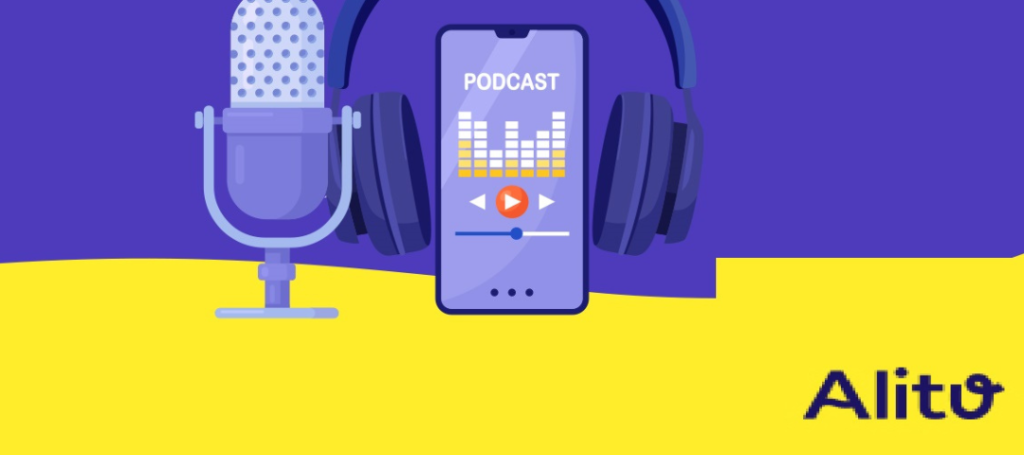
Overview:
Alitu is an all-in-one podcast editing tool that simplifies the production process, making it especially useful for those with limited technical expertise. Its primary focus is on automating tasks like audio cleanup, noise reduction, and leveling, allowing users to focus on content rather than technicalities. The platform also offers simple editing tools for cutting out mistakes, adding transitions, and building episodes with its intuitive drag-and-drop interface. Another key feature is the direct upload capability, allowing podcasters to seamlessly publish their content to popular hosting platforms like Libsyn and Buzzsprout. While Alitu’s features may be more basic compared to other tools, it’s ideal for users who want a straightforward, hassle-free production process.
Key Features:
- Automatic audio cleanup: Reduces noise, levels audio, and compresses files for optimal quality.
- Simple editing: Easily cut out mistakes and add transitions or music.
- Episode builder: Drag-and-drop feature for easy episode creation.
- Host integration: Directly upload episodes to hosting platforms like Libsyn or Buzzsprout.
Pricing:
- Monthly Plan: $32/month.
- Annual Plan: $320/year (around $26/month).
Pros:
- Extremely user-friendly, perfect for beginners.
- Automatic audio cleanup makes editing quick and efficient.
- Integrated hosting uploads streamline the workflow.
Cons:
- Limited customization for more advanced users.
- Slightly expensive for the level of features offered.
Rating: 7.5/10
Alitu is an excellent tool for beginners due to its ease of use and automation, but its limited customization options and relatively high price prevent it from scoring higher. It’s ideal for those looking for simplicity over advanced editing features.
4. Podcastle

Overview:
Podcastle is an AI-powered podcast creation platform that provides a comprehensive set of tools for recording, editing, and enhancing audio. It leverages advanced AI technologies to make the podcasting process easier for both beginners and professionals. Podcastle offers key features like noise and echo cancellation, an AI-powered “Magic Dust” feature for audio enhancement, and even AI-generated voice skins for voice-overs or narration. Additionally, its remote interview recording function ensures high-quality audio even when recording guests from different locations. This makes Podcastle a versatile and affordable option for podcasters looking to simplify their workflow with AI-driven solutions.
Key Features:
- Noise and echo cancellation: Automatically reduces background noise and echo for clearer audio.
- Magic Dust: A one-click tool that improves audio quality instantly.
- AI voice skins: Allows users to create AI-generated voices for narration or voice-overs.
- Remote interview recording: High-quality audio for guests recorded remotely.
Pricing:
- Free: 3 hours of recording, 1 hour of Magic Dust, and basic editing.
- Storyteller Plan: $11.99/month for 10 hours of recording and editing.
- Pro Plan: $23.99/month for 25 hours of recording and access to advanced features.
Pros:
- A wide range of features, including AI voice generation and audio enhancement.
- Magic Dust significantly improves audio with minimal effort.
- Affordable pricing, especially for individual podcasters.
Cons:
- AI-generated voices may sound unnatural or robotic at times.
- The free plan has limited features for frequent podcasters.
Rating: 8/10
Podcastle stands out with its advanced AI features and affordability, making it an excellent option for podcasters who want to enhance audio quality with minimal effort. However, the AI-generated voices can sound artificial, and the free plan may not provide enough features for regular podcast production.
5. Hindenburg Journalist Pro

Overview:
Hindenburg Journalist Pro is a professional podcast editing tool designed specifically for spoken-word content, making it a go-to solution for podcasters who want high-quality production. Its robust feature set includes automated leveling to balance different voices, noise reduction for cleaner audio, and a unique voice profiler that adjusts settings based on individual voice characteristics. The software is tailored for podcast production, ensuring podcasters have everything they need to produce polished episodes. Additionally, Hindenburg allows direct publishing to podcast hosting platforms, streamlining the workflow.
Key Features:
- Auto-leveling: Automatically balances voice levels for consistent volume.
- Noise reduction: Reduces background noise and improves voice clarity.
- Voice profiler: Customizes audio settings to optimize different voices.
- Publishing: Export and publish podcasts directly to hosting platforms.
Pricing:
- Hindenburg Journalist: $95 (one-time purchase).
- Hindenburg Journalist Pro: $375 (one-time purchase).
Pros:
- Specifically designed for podcasters with tailored features.
- High-quality audio processing for professional results.
- One-time purchase model, avoiding monthly subscription fees.
Cons:
- Higher upfront cost compared to subscription-based tools.
- Requires some time to learn for users new to audio editing.
Rating: 8.5/10
Hindenburg Journalist Pro excels in delivering high-quality audio tailored for podcasters, making it a top choice for professionals. However, the steep upfront cost and learning curve may deter beginners or those looking for a simpler solution.
6. Adobe Audition

Overview:
Adobe Audition is a professional-grade audio editing software known for its robust feature set, making it a powerful choice for podcasters who require advanced control over their audio. Although it’s not AI-driven like some other podcast tools, it offers an extensive range of editing capabilities, from multi-track editing to sophisticated noise reduction. Audition is ideal for podcasters working on complex projects with multiple sound layers, and it integrates seamlessly with other Adobe Creative Cloud products like Premiere Pro, making it especially valuable for creators involved in multimedia production.
Key Features:
- Multi-track editing: Perfect for editing podcasts with multiple voices, music, or sound effects.
- Noise reduction: Advanced tools to remove background noise, hums, and static.
- Sound effects library: Access a wide range of royalty-free music and sound effects.
- Adobe integration: Works effortlessly with other Adobe tools, like Premiere Pro, for multimedia projects.
Pricing:
- Monthly Plan: $20.99/month.
- Annual Plan: $239.88/year (around $19.99/month).
Pros:
- Extremely powerful and offers a wide range of advanced features.
- Integrates smoothly with other Adobe software, enhancing workflow for multimedia creators.
- Ideal for professionals who need in-depth control over every aspect of their audio.
Cons:
- Has a steep learning curve, which can be overwhelming for beginners.
- Not specifically designed with podcast production in mind, so some features may be more than what podcasters need.
Rating: 9/10
Adobe Audition earns its high rating for its advanced editing capabilities, making it a top choice for professionals who require complete control over audio production. However, its steep learning curve and high-end features may be more than necessary for casual podcasters.
7. Sonix
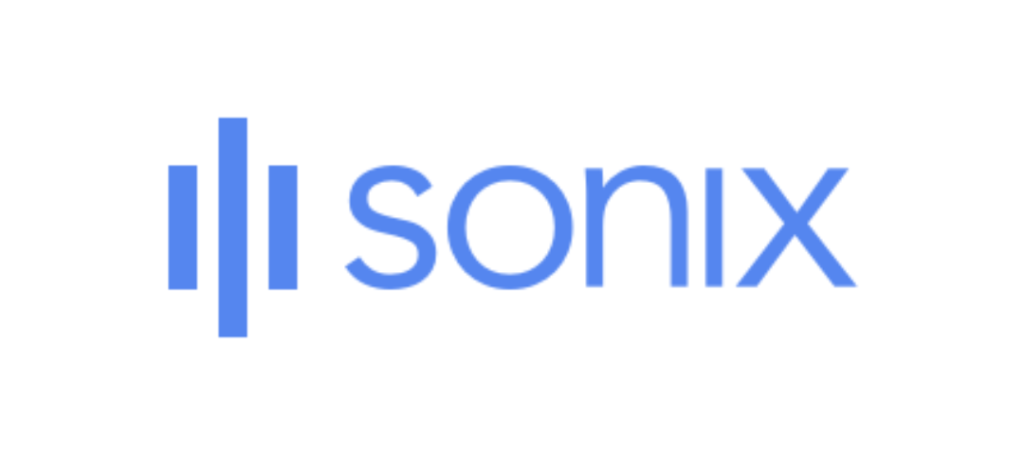
Overview:
Sonix is an AI-powered transcription service designed for podcasters who need quick and accurate transcriptions of their episodes. In addition to transcription, Sonix offers basic audio and video editing features, making it more versatile than a simple transcription tool. Users can edit their audio by modifying the transcript, which simplifies the production process. Sonix also supports automated translation, making it easy to convert podcasts into different languages, further expanding its utility. Although it’s primarily focused on transcription, its integrations with tools like Adobe Audition and Final Cut Pro add value for users who need to streamline their workflow.
Key Features:
- AI transcription: Provides fast and accurate transcriptions in multiple languages.
- Automated translation: Allows users to transcribe and translate podcasts into other languages.
- Audio and video editing: Edit audio or video by making changes to the transcript.
- Integrations: Seamlessly works with platforms like Adobe Audition and Final Cut Pro.
Pricing:
- Pay-as-you-go: $10/hour for transcription.
- Premium Plan: $22/month for unlimited transcription.
Pros:
- AI-powered transcription is highly accurate and fast.
- Editing audio and video through transcript changes is efficient and user-friendly.
- Affordable and scalable pricing, especially for high-volume transcription needs.
Cons:
- Limited in editing tools compared to more comprehensive software like Descript or Adobe Audition.
- Not a full-fledged podcast production platform; mainly focuses on transcription.
Rating: 7.5/10
Sonix is an excellent option for podcasters who need fast and accurate transcription with the added convenience of editing through the transcript. However, it lacks the broader editing features of other tools, making it best suited for transcription-heavy workflows rather than full podcast production.
8. Cleanvoice
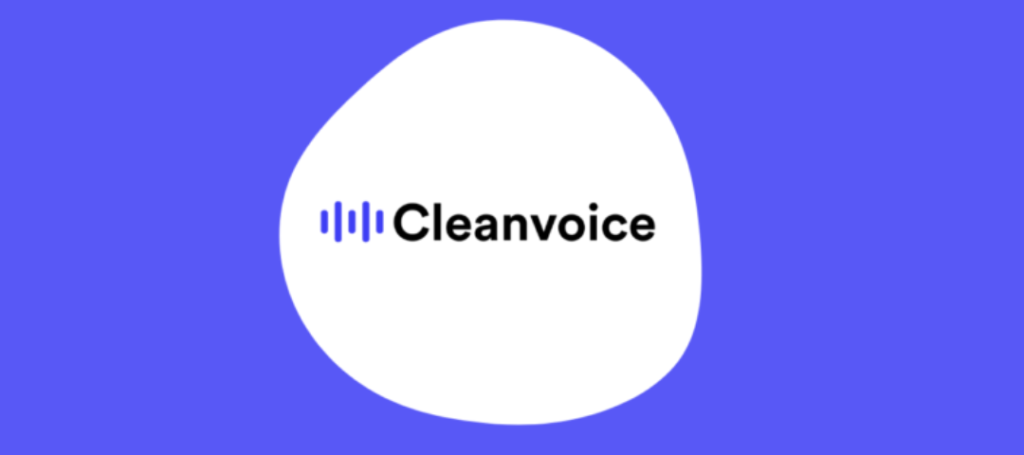
Overview:
Cleanvoice is an AI-powered podcast editing tool designed to simplify the audio cleanup process. It focuses on automating the removal of filler words, mouth sounds, and lengthy pauses, making it easier for podcasters to produce polished content without spending hours on manual editing. By targeting these specific elements, Cleanvoice accelerates the post-production phase, allowing podcasters to focus more on content creation rather than tedious editing. While Cleanvoice is a great solution for audio cleanup, its feature set is primarily limited to this function, making it a specialized tool rather than an all-in-one podcast production platform.
Key Features:
- Filler word removal: Automatically eliminates common filler words like “uh,” “um,” and similar verbal hesitations.
- Mouth sound detection: Detects and removes unwanted mouth noises such as lip smacks or breath sounds.
- Silence trimming: Automatically cuts out extended pauses or awkward silences to enhance the flow of the conversation.
- Multi-language support: Offers functionality across multiple languages, making it suitable for podcasters working in different languages.
Pricing:
- Basic Plan: $10 per hour of processed audio.
- Pro Plan: Custom pricing for teams and businesses.
Pros:
- Effectively removes filler words and undesirable sounds, streamlining audio editing.
- Saves significant time in the post-production process.
- Simple and user-friendly interface for quick adoption.
Cons:
- Limited features beyond audio cleanup.
- Pricing can become costly for high-volume users as it is based on processed audio hours.
Rating: 7/10
Cleanvoice is a time-saving tool for podcasters focused on cleaning up raw audio, but its limited feature set and pricing model make it less appealing for more comprehensive podcast production needs.
9. Reaper

Overview:
Reaper is a highly versatile digital audio workstation (DAW) offering professional-grade editing and recording capabilities at an affordable price. While it lacks AI-driven automation, Reaper stands out for its flexibility and customization, making it an attractive option for podcasters who require advanced tools for editing complex episodes. Its multi-track editing capabilities allow for seamless management of audio layers, ideal for podcasts with multiple guests, music, or sound effects. Though it’s more of a general audio production tool, podcasters who invest the time to learn Reaper can enjoy its robust features and adaptability.
Key Features:
- Multi-track editing: Perfect for managing complex podcast setups with multiple tracks for voices, music, or effects.
- Customizable interface: Adjust the DAW layout and tools to fit your specific workflow and preferences.
- Wide range of effects: Includes built-in effects to enhance voice quality and overall sound.
- Support for third-party plugins: Extend its functionality using VST plugins for additional effects and tools.
Pricing:
- Discounted License: $60 (for personal or small business use).
- Commercial License: $225.
Pros:
- Extremely affordable compared to other DAWs in the market.
- Highly customizable with a variety of plugins and extensions.
- Powerful multi-track editing for complex audio setups.
Cons:
- Steeper learning curve, especially for beginners unfamiliar with DAWs.
- Not specifically designed for podcast production, making it less intuitive for podcasters.
Rating: 8/10
Reaper offers exceptional value with its rich feature set and affordability, especially for podcasters who need advanced editing tools. However, its complexity and lack of podcast-specific features may deter those looking for a more straightforward, out-of-the-box solution.
10. Spext
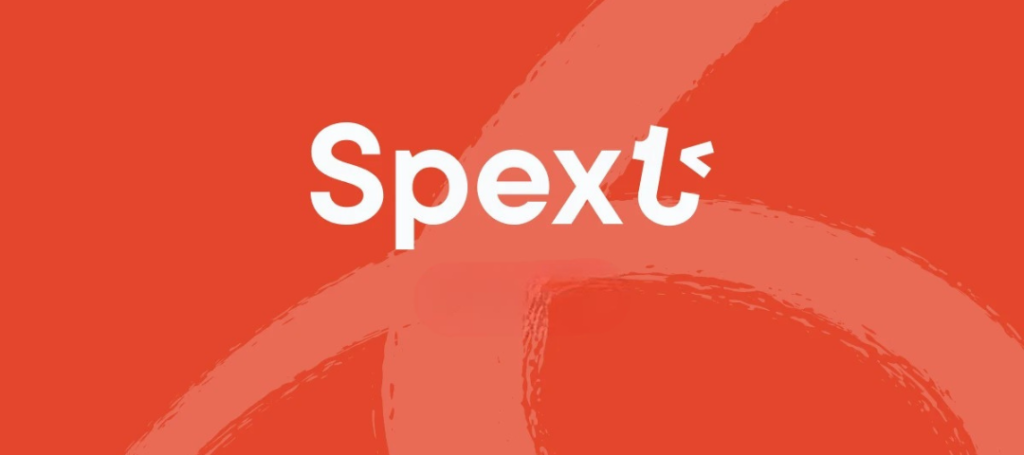
Overview:
Spext is an AI podcast editing tool that transforms audio into text, making it possible to edit podcast episodes as easily as editing a document. With a strong focus on transcription-based editing, Spext is designed to streamline the editing process, allowing users to make changes to the transcript and have those modifications reflect in the audio. It’s particularly beneficial for teams who collaborate on podcast production, offering features that simplify sharing and teamwork. While Spext is excellent for basic edits and collaboration, its feature set is limited beyond transcription, making it more suitable for simpler editing tasks.
Key Features:
- Transcription-based editing: Modify the transcript to directly edit the audio, simplifying the production process.
- Collaboration tools: Easily share projects and collaborate with team members in real time.
- Text-based audio alignment: Automatically syncs audio with the text to ensure accurate edits.
- Export options: Export projects to other editing platforms for more advanced refinement if needed.
Pricing:
- Starter Plan: $15/month for 5 hours of transcription.
- Pro Plan: $60/month for 25 hours of transcription.
Pros:
- Easy-to-use interface with a focus on collaboration, ideal for teams.
- Simplifies the editing process with text-based audio editing.
- Collaborative features make it a great tool for podcast teams.
Cons:
- Can be expensive for individual users with lower transcription needs.
- Limited in functionality beyond transcription-based editing, lacking advanced audio production tools.
Rating: 7/10
Spext is an excellent tool for podcast teams looking for a simple and efficient way to edit audio collaboratively. However, its higher price for individuals and limited features outside of transcription-based editing make it less versatile for users who require more comprehensive podcast production tools.
Which AI Podcast Tool Should You Use?
Here’s how the tools rank based on different podcasting needs:
Descript (9/10): Best for all-in-one editing and transcription-based production.
Auphonic (8.5/10): Best for automated post-production.
Podcastle (8.8/10): Best for remote recording and AI audio enhancement.
Alitu (8/10): Best for beginners wanting automation.
Adobe Podcast (8.7/10): Best for advanced users within the Adobe ecosystem.
Hindenburg Journalist (8.6/10): Best for professional audio editing with one-time pricing.
Zencastr (8.5/10): Best for remote interviews and recording.
Sonix (8.4/10): Best for transcription needs.
Reaper (8.2/10): Best for podcasters with advanced audio editing needs.
Otter.ai (8.3/10): Best for transcription and collaboration.
Each of these 10 AI AI podcast production tools has strengths that cater to different aspects of podcasting. Whether you’re focused on editing, post-production, or transcription, there’s a tool here to simplify your workflow and boost your podcast quality.
These top 10 AI podcast production tools offer a variety of features, from transcription-based editing to automated audio enhancement. No matter your level of experience or the type of podcast you produce, these tools can help you save time and improve the quality of your content.



Pingback: AI-Powered Audio Editing: How AI Can Enhance Sound Quality and Save Time | AI Content Minds